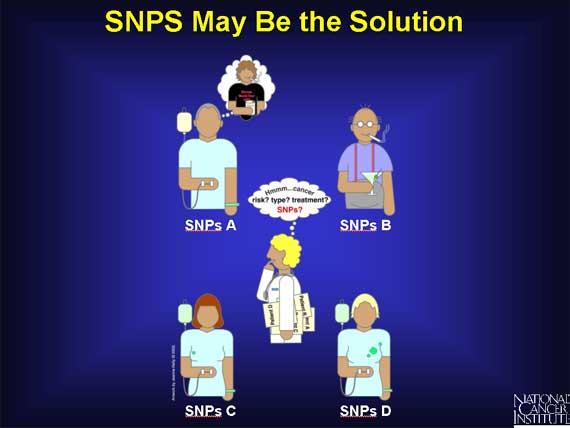|
Scientists think that tiny variations in the human genome called Single Nucleotide Polymorphisms, or SNPs (snips) for short, can help them to answer these questions. They believe SNPs can help them catalogue the unique sets of changes involved in different cancers. They see SNPs as a potential tool to improve cancer diagnosis and treatment planning. They suspect that SNPs may play a role in the different responses to treatments seen among cancer patients. And they think that SNPs may also be involved in the different levels of individual cancer risk observed.
So what exactly are SNPs?
How are they involved in so many different aspects of health?
To answer these questions, one first needs to look at the human genome.

< Previous | Index | Next Slide > |